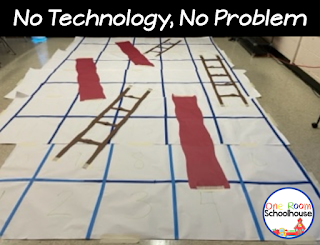What do you do when the kids do not have access to individual devices? How do you keep kids engaged especially those last few days of school? The answer is games. Here are some key advantages:
- Increased engagement: Games are inherently interactive and fun, which can boost student engagement and motivation. They create a positive learning environment by capturing students' interest and making the learning process enjoyable.
- Active learning: Games encourage active participation and hands-on experiences. Students become active learners rather than passive recipients of information. They often involve problem-solving, critical thinking, decision-making, and collaboration, promoting higher-order thinking skills.
- Reinforcement of learning: Games can reinforce and solidify the knowledge and skills learned in the classroom. By integrating educational content into game mechanics, students get repeated exposure to concepts and can practice and apply what they have learned in a meaningful context.
- Increased retention: When learning is enjoyable and interactive, students are more likely to retain the information for longer periods. Games provide memorable experiences that connect with emotions, helping students remember content and concepts more effectively.
- Differentiated instruction: Games can be designed to accommodate different learning styles and abilities, allowing for personalized and differentiated instruction. They can offer adaptive features that adjust the difficulty level based on individual progress, ensuring a tailored learning experience for each student.
- Collaboration and social skills: Many educational games promote collaboration and teamwork. They provide opportunities for students to work together, communicate, negotiate, and solve problems collectively. This fosters the development of social skills and enhances the ability to work in groups.
- Assessment and feedback: Games can be used as formative assessment tools, allowing teachers to gather real-time data on students' performance, progress, and areas of difficulty. Immediate feedback within the game environment helps students identify mistakes, understand their misconceptions, and make corrections.
- Emotional well-being and resilience: Games often create a safe space for students to experiment, take risks, and learn from failures without fear of judgment. This can contribute to building resilience, improving problem-solving skills, and developing a positive attitude toward challenges and setbacks.
Want to step up your games? Make a giant game board in your classroom. You can customize the content using flash cards or any set of questions you want students to answer. My kids LOVED playing Snakes and Ladders the last few days of school.



No comments
Post a Comment